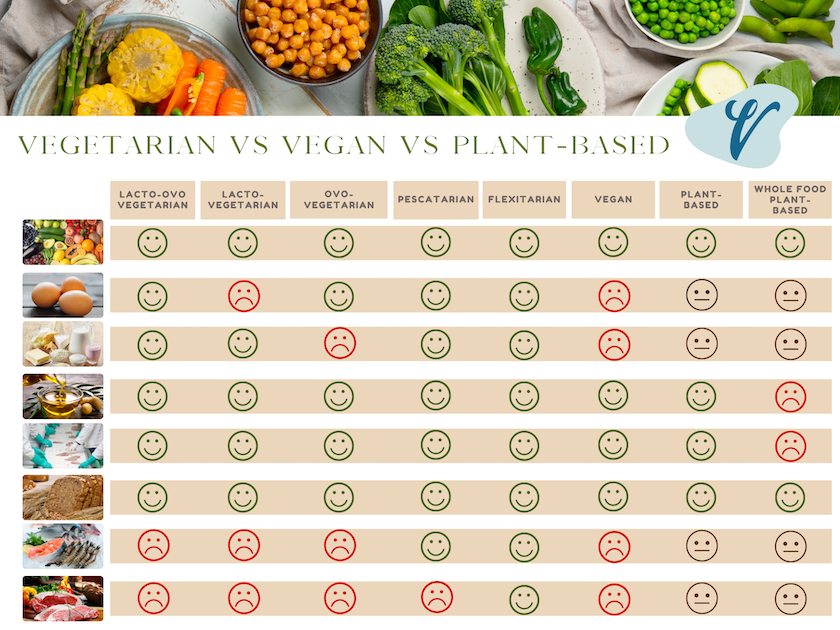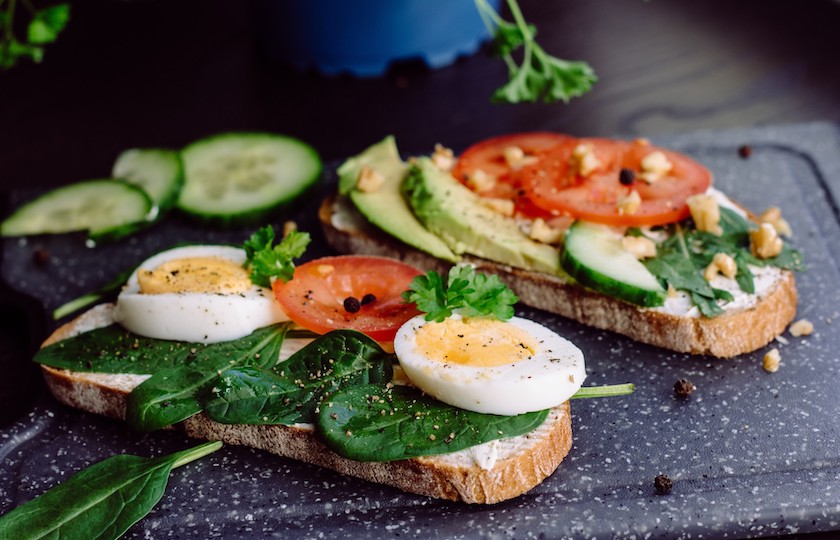What are the differences between vegan, vegetarian, and plant-based diets? Over the past years, these lifestyles have grown popular for various reasons, from improving health, taking a stance against animal cruelty, following a religion, or simply personal preference.
In recent times, the term “plant-based” – a new green buzzword – has sprouted on social media, on restaurant menus, and into supermarkets.
At first glance, the difference between the three might seem subtle, thus becoming a source of confusion for many. How do you tell which is which? And which diet is best for the planet?
This feature will discuss each diet in detail and we hope you’ll find this simple guide – and our chart at the bottom – useful!
Differences between vegan, vegetarian and plant-based diets
A vegetarian diet
Going vegetarian means choosing to eliminate meat from one’s diet. Depending on the variation, one can still consume types of animal byproducts, such as milk, eggs, or honey.
There are currently six different types of vegetarian diets:
- Full vegetarians – Those who choose to abstain from any form of meat and animal byproducts fully.
- Pescatarian – Those who abstain from all meat except seafood
- Lacto-Ovo vegetarians – People who abstain from meat, except for chicken and dairy.
- Ovo-vegetarian – Those who abstain from meat except for eggs.
- Pesco-Pollo vegetarian _ People who avoid red meat and only eat chicken and seafood.
- Flexitarians – This is subject to debate, as flexitarians often follow a plant-based diet and typically prefer to include more plants in their diets than meat.
People who prefer a stricter form of vegetarianism should still prioritise including protein in their diet from other sources, especially those older, to keep their strength and mobility. Some alternative protein sources include legumes, tofu, nuts, seeds, and whole grains. Another mineral to include is Iron, which can be harder to get from plant sources, so supplements are recommended to prevent malnutrition.
Pros:
- Lower risk of metabolic diseases – Compared to omnivores, vegetarians have reduced BMI (body mass index), cholesterol, and blood sugar. (Source: Critical Reviews in Food Science and Nutrition).
- Better cardiovascular health (Source: Vegetarian diet study from Neurology).
- Safe for any age, even for pregnant or breastfeeding women (Source: Journal of the Academy of Nutrition and Dietetics).
Cons:
- May require supplementation as vitamins and minerals such as Omega-3 fatty acids, iron, zinc, iodine, calcium, vitamin D and vitamin B12, which are commonly sourced from animal meat.
A vegan diet or lifestyle
More than just a diet, veganism is a lifestyle deeply rooted in ethical and moral reasons such as animal rights and welfare. It is a way of living that excludes all animal products including in food, beauty products, clothing and accessories. Going vegan means total abstinence from meat, eggs, dairy, and even honey.
Pros:
- Lower risk of chronic diseases (Source: Nutrition Reviews).
- Lower environmental footprint, eco-friendly.
Cons:
- The choice of food is very limited, and one needs to carefully examine the ingredients of whatever they’ll consume to make sure it’s 100 per cent vegan.
- Supplementation is needed to avoid malnutrition. Like vegetarians, vegans are prone to deficiencies in Omega-3s, Iron, zinc, iodine, calcium, vitamin D and vitamin B12.
A plant-based diet
Compared to vegan and vegetarian diets, adopting a plant-based diet is a more flexible way of eating as it doesn’t require anyone to eliminate other food sources. Rather, it simply means filling up one’s plate with more plant-based foods such as vegetables, fruit, grains, nuts, legumes and seeds – or perhaps adopting a number of meat-free days each week, like Meatless Mondays.
Additionally, alt-meat – meat alternatives produced from plants – can be part of the diet of consumers who still want to include meat-like products in their diet that are not from animals. With many people becoming aware of and concerned about their health, or the impact on the environment of meat production, plant-based diets are becoming more common.
One straightforward reason that a plant-based diet is better for the environment is that it’s simply more sustainable. Eating plants – instead of eating animals that eat plants – removes a significant environmental burden that goes along with animal agriculture, whether through the use of water in processing, the pollution of land by farming, or methane emissions from cattle.
Pros:
- Lower risk of type-2 diabetes (Source: JAMA).
- Better heart health (Source: Journal of the American College of Cardiology).
- Sustainability, because it reduces consumption of animals or animal byproducts.
Cons:
- Its vague definition leaves the majority of people confused about what they can or cannot eat.
Vegan, vegetarian and plant-based food chart
Avoid confusion! Feel free to save, share, or print the infographic below to use as a handy reference:




